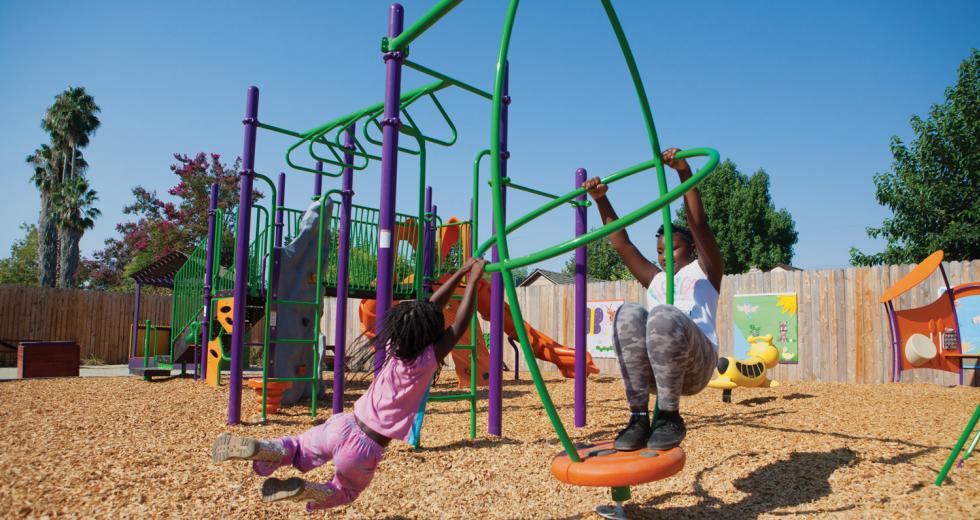It’s been a busy year for Next Move Sacramento. The nonprofit shelter and family assistance program brought on a new executive director in October of 2015, and in January of this year, welcomed local homeless charity Francis House Center into their fold. They also finally made some major and much-needed renovations last summer to their housing and family shelter on Parker Avenue in the south Oak Park neighborhood. But one thing was still missing, says Next Move’s new executive director, Tricia Rosenbaum.
“What was missing,” she says, “was a place for the kids to play.”
You see, Next Move doesn’t just accept homeless families to try to help them get back on their feet, they accept all kinds of homeless people: the elderly, veterans, single moms — and for a long time, they were the only shelter in Sacramento that would allow single dads to come stay with their children. “We were the only shelter for years that served all types of families,” Rosenbaum says.
So while mom and dad were getting help from Next Move staff, or worrying about how to pay bills, taking financial classes inside or trying to find where their next meal would come from, their children had little choice but to sit for long hours watching; or at best, they could go play in the parking lot or the dirt patch next door, Rosenbaum says.
“It was typical of a grassroots, small nonprofit, making do with less,” Rosenbaum says of the property before renovation. But in June, more than 200 volunteers converged on Next Move, and built a beautiful new playground in less than a day. The effort was spearheaded by Let’s Play, an initiative of the Dr. Pepper Snapple Group and a grant received by KaBOOM!, a national nonprofit that seeks to provide community spaces for active play.
Next Move serves more than 10,000 people in the Sacramento area every year, Rosenbaum says. They provide a safety net of services that range from arranging for bus passes to maintaining permanent housing for the disabled or mentally ill. Their renovation of the main shelter last year was funded through grants, including a $1 million contribution from Goodwill for a matching federal grant. The upgraded shelter now holds 85 beds, a kitchen, a training room and a kids room. But the new playground is arguably the favorite feature for the shelter’s youngest guests.
“I think people need to understand that the face of homelessness is not just the person on the corner panhandling,” Rosenbaum says. “What gets lost is the impact on the kids. That’s a lot of pressure for kids to have to exist in.”
Now, for just a few moments during the day, she says, “they can be normal kids and just play.”



